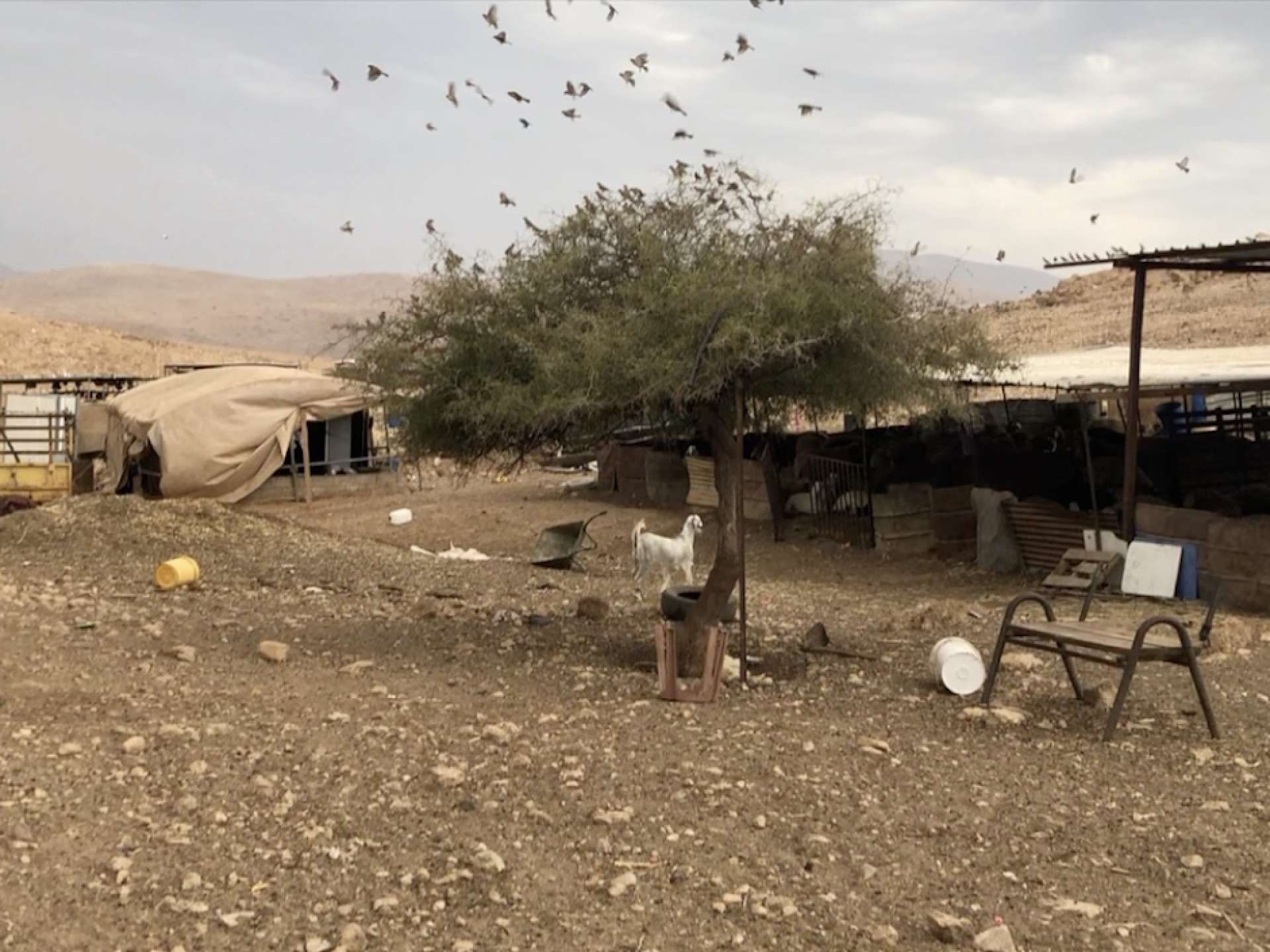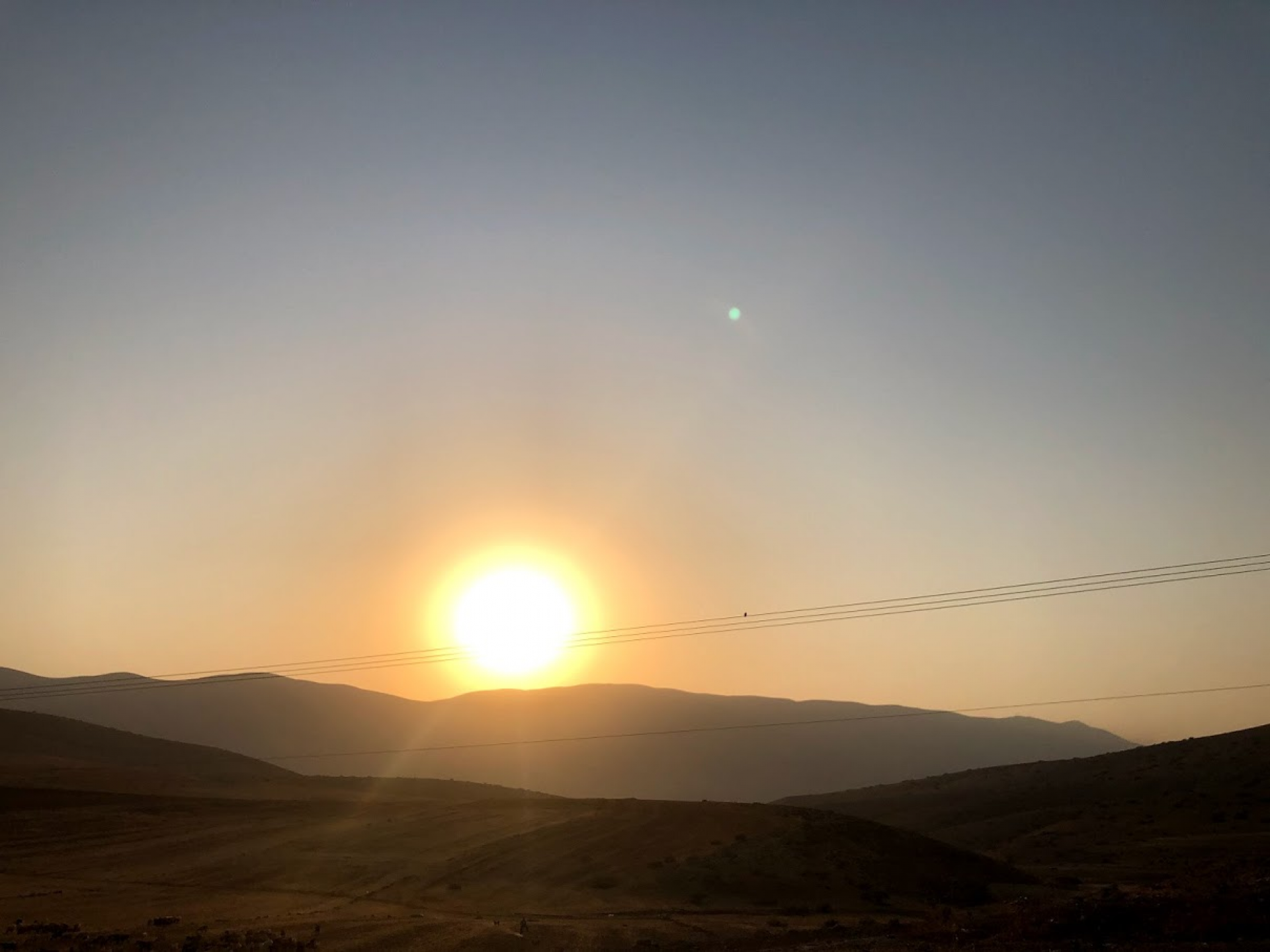Confiscating tractors as part of the dispossession policy in the northern Palestinian Jordan Valley
About a month ago (October 8, 2019), D. of the Ras Al Ahmar community drove his own tractor-shuffle-dozer, with which he makes his living. Israeli soldiers confiscated the vehicle with the excuse that it entered an army-declared firing zone. Since then he has been trying to find out how much it would cost him to repossess his tractor, for this is the procedure – if your possession is confiscated, you have to pay to get it back. The fine will probably be in the thousands of shekels. Moreover, for every additional day that the Civil Administration “guards” your tractor – the cash register keeps count and the fine mounts. He applied to the authorities many times, even lodged a complaint, and has received no answer whatsoever. In the meantime he is without means to make a living.
“guards” your tractor – the cash register keeps count and the fine mounts. He applied to the authorities many times, even lodged a complaint, and has received no answer whatsoever. In the meantime he is without means to make a living.
Explanation: Palestinians are not allowed to live in 77% of the Area C parts of the Palestinian Jordan Valley. Of these, 45% are declared ‘firing zones’ by the Israeli army and even entering them is forbidden for Palestinians. Most of the Palestinian shepherd communities in the northern Palestinian Jordan Valley, about 1500 people, live and graze in ‘firing zones’. Namely: military law allows the authorities to demolish their homes, expel them and confiscate their property at any given moment. But if this be done to everyone – it won’t look too good for the world at large. It would be tagged “ethnic cleansing”. Thus Palestinians’ lives are made impossible in various ways until they have no other choice but to leave. One of the ways is to confiscate their tractors, water tankers etc., and lay heavy fines on their retrieval. Please keep in mind that this is an extremely impoverished community that lives on the very bottom ranks of the economic scale. A workday’s wages – without any social benefits – lie somewhere between 68 and 80 shekels, for example.
In November 2019, L. of the Yarza community met soldiers while driving his tractor. They took his phone, his ID, and his tractor driver’s license, and ordered him to report with his tractor at the Beqa’ot settler-colony, where an Israeli military unit is posted permanently. Namely – he should bring them the tractor in order for them to confiscate it…! Inside his ID were some money bills (the person who told me this couldn’t say how much was there. He doesn’t believe the money will be returned). I have no idea how this affair was concluded.
The shepherds cannot survive without their tractors. Their encampments are situated between the hills and they have no access roads. Tractors are the only form of motorized transport, (disregarding donkeys and horses) to reach a main road, schools, clinics, shop for food, and in general stay in contact with the world, especially in the wintertime when the dirt roads turn into mud. And wintertime is naturally the season when the Civil Administration likes to carry out its confiscations. In winter 2018, Ras Al Ahmar residents had 9 of their 11 tractors confiscated, and were thus left without them for several weeks. Perhaps they will break down and leave.
This time we were accompanied by three Palestinian women, citizens of Israel, living in one of the northern towns in the country. M. was with us several months ago. Since then she has taken her family to be acquainted with shepherd families in the Palestinian Jordan Valley.
Her lawyer son has helped one of the families with problems vis a vis the Israeli authorities. Today she brought along two friends and they too promised to stay in touch.
The ties between Palestinian citizens of Israel and the shepherd communities contributes much to both sides. They share culture, a past, and discrimination by the Israeli authorities – and all of these make for closer relations.
בקעת הירדן 9.11.2019


